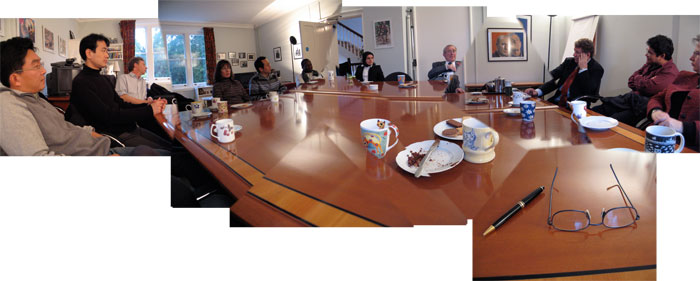Interesting — if inconclusive piece by Richard Siklos about whether Google is a friend or a foe for traditional media companies.
Is Google a media company? The last time I checked, a media company was generally defined as a business that accumulates audiences and sells access to them to marketers.
And Mr. Schmidt said recently: “Ultimately, our goal at Google is to have the strongest advertising network and all the world’s information. That’s part of our mission.” And if it is a media company, it is the world’s biggest, with a market capitalization of $144 billion.
But when I spoke to David Eun, Google’s vice president for content partnerships, he took umbrage with the media designation. He noted that Google did not create or own content — in his mind, part of the definition of a media company. Rather, he said, Google is a technology company: “I would say we’re a conduit connecting our users with content and advertisers.”
The point may be semantic, but it reminded me of the longstanding friction between cable companies and TV broadcasters over whether cable should pay for distributing the free over-the-air signals — or whether cable was doing the broadcasters a favor by putting their signals onto the system through which most people watch television.
Again, Mr. Eun disagreed, noting that Google is not a distributor: it tries to push people to other Web sites and takes immense geek pride in how quickly it does so.
Indeed, a search for “Google” and “friend or foe” took me 0.10 seconds and elicited 271,000 results. It took Mr. Eun not much longer to try to explain to me that Google (a) respects copyrights, (b) gives any content owner a choice of opting in or out of its search results and (c) focuses on ways to help its media partners achieve their goals. “I say firmly: we are friend because we are trying to build your business objectives,” Mr. Eun said.


